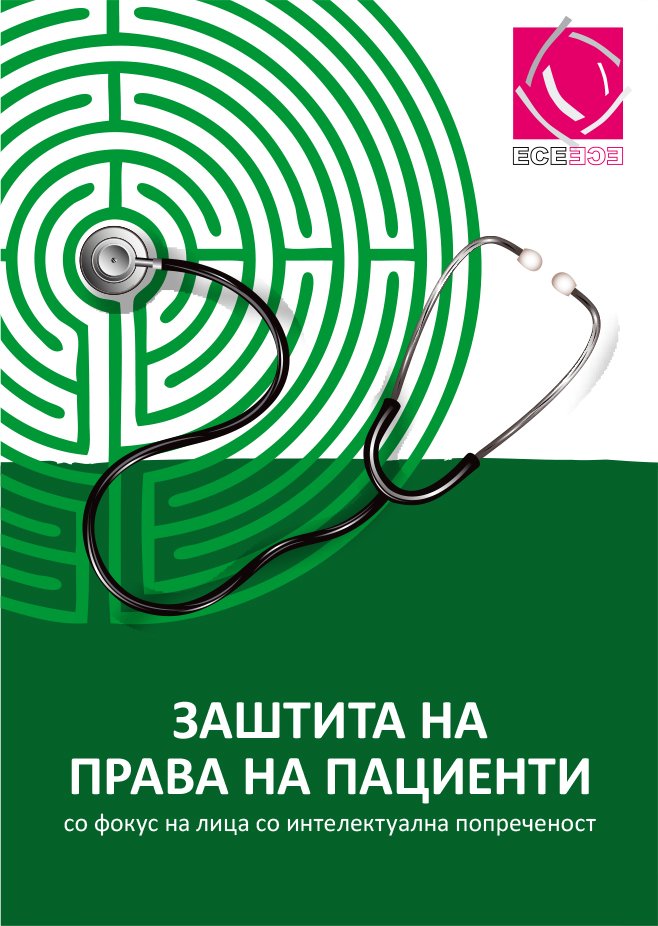The right to health is an internationally recognized right. This right is defined for the first time by the World Health Organization as “a right of everyone to the highest attainable standard of physical and mental health”. The right to health is closely linked to the protection of patients’ rights which represent a set of rights, responsibilities and obligations under which individuals seek and receive health care services.
The Republic Center for Support of Persons with Intellectual Disability – PORAKA has established successful cooperation with the Association for Emancipation, Solidarity and Equality of Women in the Republic of Macedonia – ESE. As a result of this cooperation, several activities have been implemented i.e. PORAKA as a part of the civil association’s coalition, led by ESE, worked on preparation of a report on the situation regarding human rights of vulnerable groups of citizens in the area of health protection and health insurance, which has been submitted to the Council of Human Rights.
Another jointly realized activity is within the project Human Rights in Health Protection, which is being implemented by ESE. Brochure was prepared and published titled “Protection of rights of patients with focus of persons with intellectual disability”. The brochure emphasizes that persons with intellectual disability have the equal right to access and use the services which are provided within the framework of the health care facilities as well as any other citizen in the Republic of Macedonia. Every patient has the right to exercise the rights from health protection without discrimination based on sex, race, color, language, religion, political or other opinion, national or social origin, belonging to national minority, material situation, birth, sexual orientation or any other status. Intellectual disability is not covered as a base for discrimination, but the provisions of this law are referring also to persons with intellectual disability as users of health care services that should have unfettered access to regular and specialized health care services and programmes suitable to their needs.
Their marginalization in the social and public life has a negative impact on the level of exercise of the rights regulated within the health laws, including the Law on Health Care, Law on Health Insurance and Law on protection of patients’ rights. The brochure includes the rights of the patients according the Law on protection of patients’ rights:
- The right to preventive measures;
- The right to access;
- The right to be informed;
- The right to consent;
- The right to respect for personality and dignity;
- The right to respect the quality standards;
- The right to avoid unnecessary suffering and pain;
- The right to access the medical files;
- The right to maintain contacts;
- The right to second professional opinion and consultative opinion;
- The right to personalized treatment;
- The right to appeal;
- The right to access new procedures of treatment and diagnostics;
- The right to timely treatment;
- The right to confidentiality and privacy.
The brochure also refers to the obligations that persons have as patients, and where to ask for assistance if certain right provided by the law is limited or violated.
- If you consider that you have been limited to or certain right has been violated in any of the public health care services (hospital, clinic, institute), ask whether this hospital/clinic has advisor for protecting the patients’ rights. The advisor can give you a legal advice or can assist you in submitting oral/written complaint.
- If the hospital/clinic does not have an adviser or the violation has occurred in non-hospital health facility (health center, health station), you should make the complaint directly to the director of that facility.
- The director of the facility, after examining the allegations in the complaint, is obligated to inform you regarding the measures taken within 15 days.
- If you think that the director has not taken the necessary measures, you may submit complaint to the Ministry of Health, which is due within 15 days to examine the allegations in your complaint and notify you of the measures taken.
- At the same time you may submit a request for inspection to the State Sanitary and Health Inspectorate, which after conducting the supervision has the authority to order the medical institute and the health worker to take adequate measures and activities depending on the type of violation of the law.
- Within the municipalities Commissions have been established for advancing and protecting the rights of patients. You may submit complaint to them, and they are obligated to consider it and refer you to the relevant authorities in order to help you realize your rights.
- If you are not satisfied with none of the responses from the above mentioned bodies, you may start a legal proceeding before the competent court.
- If you have been limited or violated certain right in the area of health insurance, as assistance in the health Insurance Fund of Macedonia and its branches.
In September 2013, representatives from PORAKA participated on a two-day workshop on the subject: Strategic Litigation: Human Rights in Health protection”. The aim of this workshop was to introduce the participants with the strategic litigation in cases with violation of human rights in the health protection system according the European Convention on Human Rights and Fundamental Freedoms.



